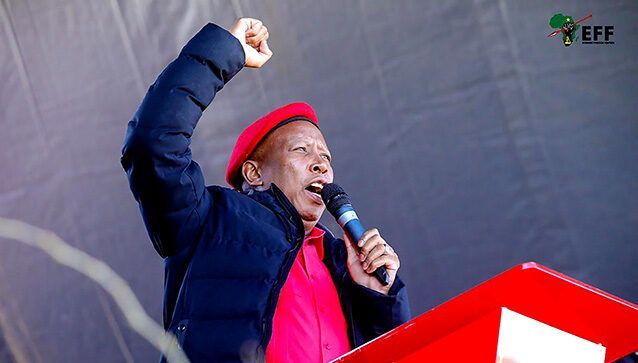The Economic Freedom Fighters (EFF) has thrown its weight behind 25 families who have filed a R167 million lawsuit against President Cyril Ramaphosa and the government, demanding justice for apartheid-era atrocities. The lawsuit seeks compensation for the state’s failure to investigate and prosecute the deaths and disappearances of anti-apartheid activists, including the Cradock Four, Nokuthula Simelane, and Imam Abdullah Haron.
In a statement, EFF spokesperson Leigh-Ann Mathys hailed the lawsuit as a “courageous act of accountability” and criticized successive administrations for neglecting the Truth and Reconciliation Commission’s (TRC) recommendations. The TRC had called for the prosecution of apartheid-era crimes and reparations for victims, but political interference—particularly during former president Thabo Mbeki’s tenure—stymied progress in over 300 unresolved cases.
The EFF also lambasted the African National Congress (ANC) for its perceived leniency towards apartheid perpetrators. The party pointed to decisions such as the controversial parole of Eugene de Kock, a notorious apartheid-era operative, who reportedly continued receiving a state salary after his release. Additionally, the EFF highlighted systemic failures within the National Prosecuting Authority (NPA), alleging that officials deliberately interfered with prosecutions to shield perpetrators.
For the affected families, this lawsuit represents more than a demand for financial compensation—it is a quest for justice and moral reckoning. Many of the families have endured decades without closure, watching as perpetrators evade accountability, often dying without facing trial.
“This case is about holding the government to account for its failure to honor the TRC’s promises. It’s not just about money; it’s about justice and ensuring that the stories of these activists are not forgotten,” said Mathys.
The EFF’s backing of the lawsuit underscores the ongoing struggle for justice in post-apartheid South Africa, where unresolved crimes continue to cast a shadow over the country’s efforts to move forward. As the families persist in their fight for accountability, the case could reignite national conversations about the long-standing need for reparations, justice, and government responsibility in addressing historical injustices.
With pressure mounting, the outcome of this lawsuit could have far-reaching implications for the government and its approach to unresolved apartheid-era crimes, marking a pivotal moment in South Africa’s pursuit of justice.






















